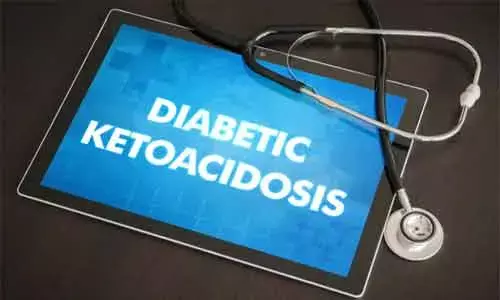- Home
- Medical news & Guidelines
- Anesthesiology
- Cardiology and CTVS
- Critical Care
- Dentistry
- Dermatology
- Diabetes and Endocrinology
- ENT
- Gastroenterology
- Medicine
- Nephrology
- Neurology
- Obstretics-Gynaecology
- Oncology
- Ophthalmology
- Orthopaedics
- Pediatrics-Neonatology
- Psychiatry
- Pulmonology
- Radiology
- Surgery
- Urology
- Laboratory Medicine
- Diet
- Nursing
- Paramedical
- Physiotherapy
- Health news
- Fact Check
- Bone Health Fact Check
- Brain Health Fact Check
- Cancer Related Fact Check
- Child Care Fact Check
- Dental and oral health fact check
- Diabetes and metabolic health fact check
- Diet and Nutrition Fact Check
- Eye and ENT Care Fact Check
- Fitness fact check
- Gut health fact check
- Heart health fact check
- Kidney health fact check
- Medical education fact check
- Men's health fact check
- Respiratory fact check
- Skin and hair care fact check
- Vaccine and Immunization fact check
- Women's health fact check
- AYUSH
- State News
- Andaman and Nicobar Islands
- Andhra Pradesh
- Arunachal Pradesh
- Assam
- Bihar
- Chandigarh
- Chattisgarh
- Dadra and Nagar Haveli
- Daman and Diu
- Delhi
- Goa
- Gujarat
- Haryana
- Himachal Pradesh
- Jammu & Kashmir
- Jharkhand
- Karnataka
- Kerala
- Ladakh
- Lakshadweep
- Madhya Pradesh
- Maharashtra
- Manipur
- Meghalaya
- Mizoram
- Nagaland
- Odisha
- Puducherry
- Punjab
- Rajasthan
- Sikkim
- Tamil Nadu
- Telangana
- Tripura
- Uttar Pradesh
- Uttrakhand
- West Bengal
- Medical Education
- Industry
Diabetic ketoacidosis tied to lower IQ in kids with type1 diabetes: Study

Diabetic ketoacidosis (DKA) is a serious but common complication of type 1 diabetes.It happens when diabetes goes undiagnosed or is poorly managed. With diabetic ketoacidosis, blood sugar gets very high as acidic substances called ketones build up to dangerous levels in the body. Early signs of diabetic ketoacidosis include excessive thirst, frequent urination, and nausea, abdominal pain, weakness and confusion.
UC Davis Health researchers have found in anew study that diabetic ketoacidosis (DKA) is linked to lower IQ scores and worse memory in children with type 1 diabetes. Children who experienced moderate and severe DKA had lower long-term memory compared to children with diabetes and no exposure to DKA.
Further DKA effects may be exacerbated in children with chronic exposure to hyperglycemia.
It is also a first large-scale work to differentiate between impact of diabetic ketoacidosis on children with a new diagnosis and children with a previous diagnosis of type 1 diabetes.
The study has been published in Diabetes Care.
"We assessed the neurocognitive effects of DKA in children with known type 1diabetes as well as in those who were just diagnosed with it," said Simona Ghetti, professor of psychology at UC Davis and the lead author on the study. "Our study uncovered that even one severe episode of DKA in children newly diagnosed with type 1 diabetes is linked to cognitive problems; and among children with a previous diagnosis, repeated DKA exposure predicted lower cognitive performance after accounting for glycemic control."
The study included 376children with type 1 diabetes and no DKA history and 758 children with type 1 diabetes and a history of DKA. These children, ages 6-18 years, were participating in a DKA clinical trial at the Pediatric Emergency Care Applied Research Network (PECARN) sites led by two of the study's co-authors, Nathan Kuppermann and Nicole Glaser.
One severe DKA episode can hurt memory and IQ
The study found that among children newly diagnosed with type 1 diabetes, those who experienced moderate and severe DKA had lower long-term memory compared to children with diabetes and no exposure to DKA. Greater severity of DKA was also associated with lower IQ in these children.
Children with a previous diagnosis showed lower performance compared with children with new onset in measures of memory and IQ, suggesting that cognitive deficits may worsen over time.
The study's large sample allowed the researchers to capture complex associations of DKA severity, socioeconomic status and blood sugar control among previously diagnosed patients. These associations revealed that patients with repeated DKA exposure and poorly controlled type 1 diabetes are at substantial risk of cognitive deficits.
"The results from the study emphasize the importance of prevention of DKA in children with known type 1 diabetes and of timely diagnosis during new onset before the development of DKA," said Glaser, professor of pediatrics at UC Davis Health and senior author of the study. "There is an opportunity to prevent DKA with proper management of the glucose level in the blood."
For further reference log on to:
Diabetes Care 2020 Sep; dc200187.
Dr Kamal Kant Kohli-MBBS, DTCD- a chest specialist with more than 30 years of practice and a flair for writing clinical articles, Dr Kamal Kant Kohli joined Medical Dialogues as a Chief Editor of Medical News. Besides writing articles, as an editor, he proofreads and verifies all the medical content published on Medical Dialogues including those coming from journals, studies,medical conferences,guidelines etc. Email: drkohli@medicaldialogues.in. Contact no. 011-43720751


